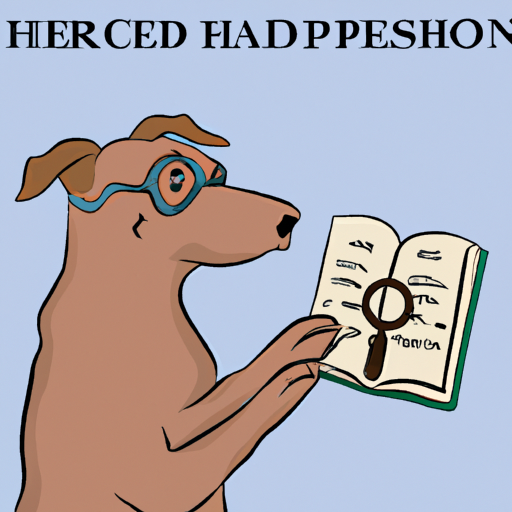Herpes in dogs, more scientifically known as Canine Herpesvirus (CHV), is a common viral infection that predominantly affects puppies less than three weeks old. This virus is often misunderstood, but it is imperative for dog owners, especially breeders, to understand how it is transmitted, its symptoms, prevention methods, and treatments.
Table of Contents
1. Understanding Canine Herpesvirus (CHV)
2. How is CHV Transmitted?
3. Symptoms of CHV in Dogs
4. Diagnosis and Treatment of CHV
5. Preventing CHV
6. FAQs
Key Takeaways
– Canine Herpesvirus predominantly affects puppies less than three weeks old.
– CHV is transmitted through direct contact with bodily fluids.
– Symptoms in puppies include difficulty breathing, crying, and decreased activity.
– Antiviral drugs and supportive care treatments can help manage CHV.
– Vaccination and good hygiene practices can help prevent CHV.
Understanding Canine Herpesvirus (CHV)
Canine Herpesvirus, or CHV, is a unique viral infection that affects dogs. Many dog owners may not be aware of this virus until their dogs are affected. CHV is a leading cause of death in newborn puppies and can cause respiratory and reproductive issues in adult dogs. More information about CHV and its effects can be found on VetMed.
Adult dogs infected with CHV may show no symptoms but can still transmit the virus to other dogs, making it a silent and deadly killer. This makes understanding the virus, its transmission, and prevention crucial for dog owners.
How is CHV Transmitted?
CHV is transmitted through direct contact with bodily fluids such as saliva, nasal discharge, urine, feces, and even the milk of an infected mother dog. Sexual transmission is also common, particularly in breeding environments.
Puppies can contract the virus from their mother during birth or through contact with contaminated objects in their environment. Adult dogs can spread the virus to each other through social interactions, such as sharing food bowls or sniffing each other.
It’s important to note that while CHV is highly infectious among dogs, it cannot be transmitted to humans or other species.
Symptoms of CHV in Dogs
Symptoms of CHV can vary greatly depending on the age of the dog:
-
Puppies: Puppies less than three weeks old are the most vulnerable to CHV. Symptoms include difficulty breathing, crying, decreased activity, refusal to nurse, and sudden death. In many cases, death can occur so swiftly that owners may not even realize that their puppies were sick.
-
Adult Dogs: Adult dogs may show no symptoms, but when they do, it’s usually mild respiratory symptoms such as coughing and nasal discharge. In rare cases, adult dogs can develop eye lesions or have reproductive issues such as infertility and spontaneous abortions.
If you suspect your dog may have CHV, it’s essential to contact your veterinarian immediately. You can also visit One Top Dog for advice on various dog health issues, including CHV.
Diagnosis and Treatment of CHV
Diagnosis of CHV is usually made through a combination of clinical signs, history, and laboratory testing. The most reliable test is a PCR test that detects the presence of the virus in bodily fluids.
Treatment of CHV is often focused on supportive care, especially for puppies. This can include providing a warm environment, as the virus cannot survive at higher temperatures, and ensuring that they receive adequate nutrition.
Antiviral drugs can also be used, but they are most effective if started early in the disease process. Unfortunately, there is currently no cure for CHV, making prevention and early detection crucial.
Preventing CHV
Preventing CHV involves maintaining good hygiene practices, isolating infected dogs, and vaccinating when possible.
Breeding dogs can be vaccinated against CHV, but it’s important to note that the vaccine does not prevent infection; instead, it reduces the severity of the disease in puppies. Regular vet check-ups and maintaining a clean environment can also go a long way in preventing CHV.
Dog owners can also benefit from resources like One Top Dog’s guide on dog health and One Top Dog’s tips for puppy care to ensure their furry friends stay healthy.
FAQs
Can humans get CHV from dogs?
No, CHV cannot be transmitted to humans or other species. It is specific to dogs.
Can CHV be cured?
No, there is currently no cure for CHV. Treatment involves managing symptoms and supportive care.
How can I prevent my dog from getting CHV?
Maintain good hygiene practices, isolate infected dogs, and consider vaccination if you have a breeding dog. Regular vet check-ups are also essential.
In conclusion, understanding how dogs get herpes, recognizing the symptoms, and knowing how to prevent it can save your canine’s life. As dog owners, our pets’ health should always be a top priority.



